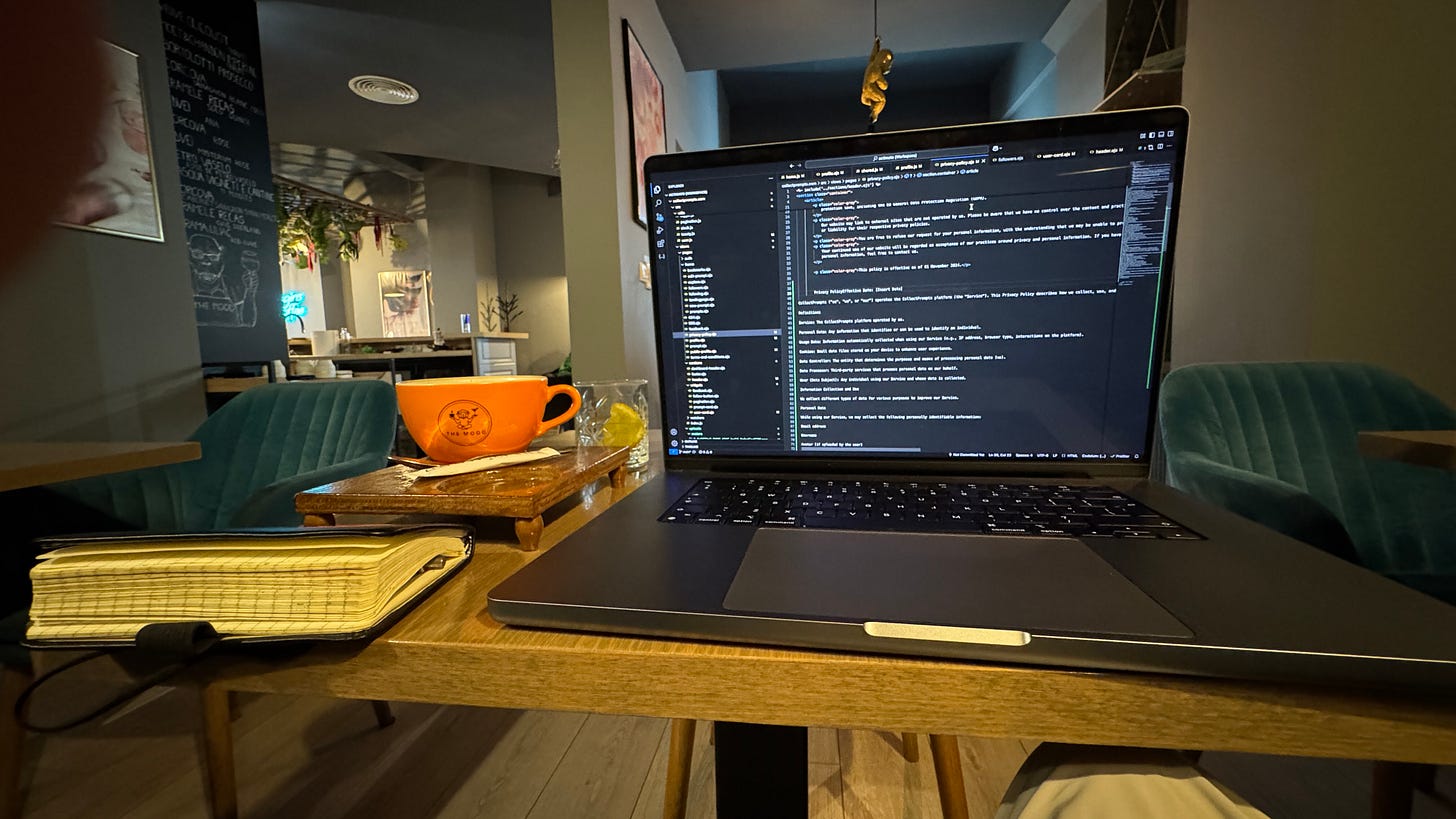Thoughts on Performance and Productivity
We're told we should measure everything. I see performance in a different way, and in this post I'm sharing some thoughts on this topic.
Hello friend,
Measuring everything is not the only way to be productive. Truth be told, I track almost nothing, except for some isolated things. Now, as they say, "you cannot improve what you cannot track". I believe that's partially true. But only partially.
We're told we should measure everything: our weight, how many exercises we did, how many bugs we fixed, how much money we spent. And the list goes on and on.
I see performance in a different way, and in this post I'm sharing some thoughts on this topic. You might disagree with my arguments, and that's encouraged. Try to find what works best for you.
1. Measure the consequences
We measure performance by numbers. We count the number of tasks we have to fix, and at the end of the day, how many we've addressed. Or we count the number of books we've read. The more we read, the better, right?
But there's another way to approach productivity: think about the consequences and eliminate what doesn't need to be done.
The worst thing, productivity-wise, is doing something that didn't need to be done in the first place, or that wasn't worth doing. What I often do is evaluate the consequences: "Why should I read this book? What am I losing if I don't read it and pick another one?"
Or, put the question the other way around: "What happens if I don't do this? What's the impact? Is this really necessary? Can I get the same or even better results doing something else?"
You can't just keep squeezing more tasks in your todo list. Being productive is also about prioritizing and eliminating tasks.
2. Create systems, not just tasks or plans
Building habits seems like the way to go. But when you overdo it, your whole life turns into a routine. It becomes too predictable to enjoy.
As I said, I enjoy being creative. The downside is I get bored fast. Considering that, building a new habit becomes really hard for me.
What I do instead is build systems around what I want to do. Do I want to read more? Following the advice of James Clear, from Atomic Habits, I put a book on my coffee table. I have one on my nightstand. I also have one on my iPad and iPhone. So whenever I tend to waste some time, with one click I have a book ready to go.
Do you want to spend less money? Or get more work done? You have to figure out what environment helps you be productive, and put systems in place that make doing the activity easier than avoiding it.
Make it easier to do the thing than to not do the thing.
3. Define goals - but do it the right way
Even though I don't like setting goals, I still define them. But I keep them easy to achieve.
In this age of instant gratification, putting too much pressure on yourself or trying to overachieve just leads to burnout.
Set goals that are achievable. You want the system in place, not just the end result. I believe it's about the journey, not necessarily the goal.
If you want to read more, don't force yourself to read a book a week. Start with one book a month. Pick something easy to get into, something you'll enjoy. You'll eventually find yourself excited to read more.
And in many cases (reading included), it's not about reading more, but rather reading better. Understanding and applying what you read matters more.
4. Stop comparing yourself to others
I felt for this, I'll be honest. As an indie maker, I've compared myself to others who've been doing this for years. I'm still working on this. It's about the journey.
Nothing magical will happen until I get better. There's no such thing like luck. (I don't believe in luck, but that's for another article.)
Some indie makers make hundreds of thousands of dollars annually. That's not luck. They know what they're doing. It's about knowing your skills.
It's hard to admit this, but yeah - it's a skill issue. That's what I'm working on now. I don't want to compare myself to other people's success. I've succeeded at many other things. It's a matter of time until this works for me, too.
In conclusion
We all want a better life. But does that mean measuring everything? Should we have everything planned?
I’d encourage you to build systems that allow you to move forward in a way that's suitable and enjoyable.
See you soon!



Great blog post Razvan!